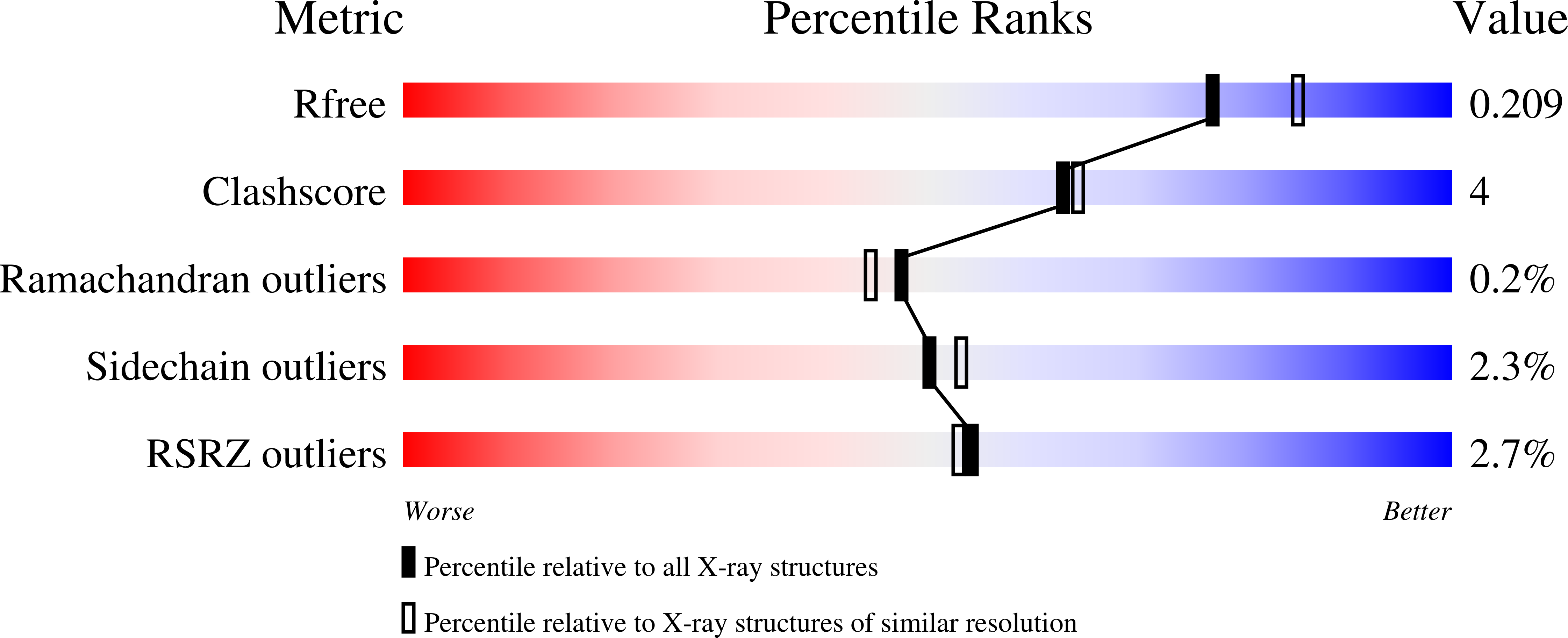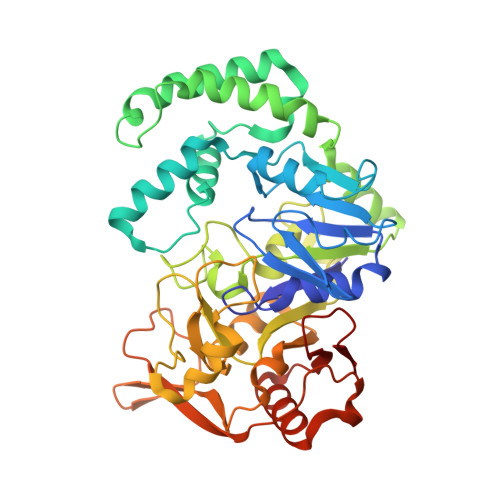The pursuit of new alternative ways to eradicate Helicobacter pylori continues: Detailed characterization of interactions in the adenylosuccinate synthetase active site.
Bubic, A., Narczyk, M., Petek, A., Wojtys, M.I., Maksymiuk, W., Wielgus-Kutrowska, B., Winiewska-Szajewska, M., Pavkov-Keller, T., Bertosa, B., Stefanic, Z., Luic, M., Bzowska, A., Lescic Asler, I.(2023) Int J Biol Macromol 226: 37-50
- PubMed: 36470440
- DOI: https://doi.org/10.1016/j.ijbiomac.2022.12.001
- Primary Citation of Related Structures:
7PVO - PubMed Abstract:
Purine nucleotide synthesis is realised only through the salvage pathway in pathogenic bacterium Helicobacter pylori. Therefore, the enzymes of this pathway, among them also the adenylosuccinate synthetase (AdSS), present potential new drug targets. This paper describes characterization of His 6 -tagged AdSS from H. pylori. Thorough analysis of 3D-structures of fully ligated AdSS (in a complex with guanosine diphosphate, 6-phosphoryl-inosine monophosphate, hadacidin and Mg 2+ ) and AdSS in a complex with inosine monophosphate (IMP) only, enabled identification of active site interactions crucial for ligand binding and enzyme activity. Combination of experimental and molecular dynamics (MD) simulations data, particularly emphasized the importance of hydrogen bond Arg135-IMP for enzyme dimerization and active site formation. The synergistic effect of substrates (IMP and guanosine triphosphate) binding was suggested by MD simulations. Several flexible elements of the structure (loops) are stabilized by the presence of IMP alone, however loops comprising residues 287-293 and 40-44 occupy different positions in two solved H. pylori AdSS structures. MD simulations discovered the hydrogen bond network that stabilizes the closed conformation of the residues 40-50 loop, only in the presence of IMP. Presented findings provide a solid basis for the design of new AdSS inhibitors as potential drugs against H. pylori.
Organizational Affiliation:
Department of Physical Chemistry, Ru?er Bo?kovi? Institute, Bijeni?ka cesta 54, HR-10000 Zagreb, Croatia.
















